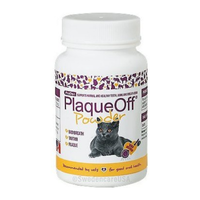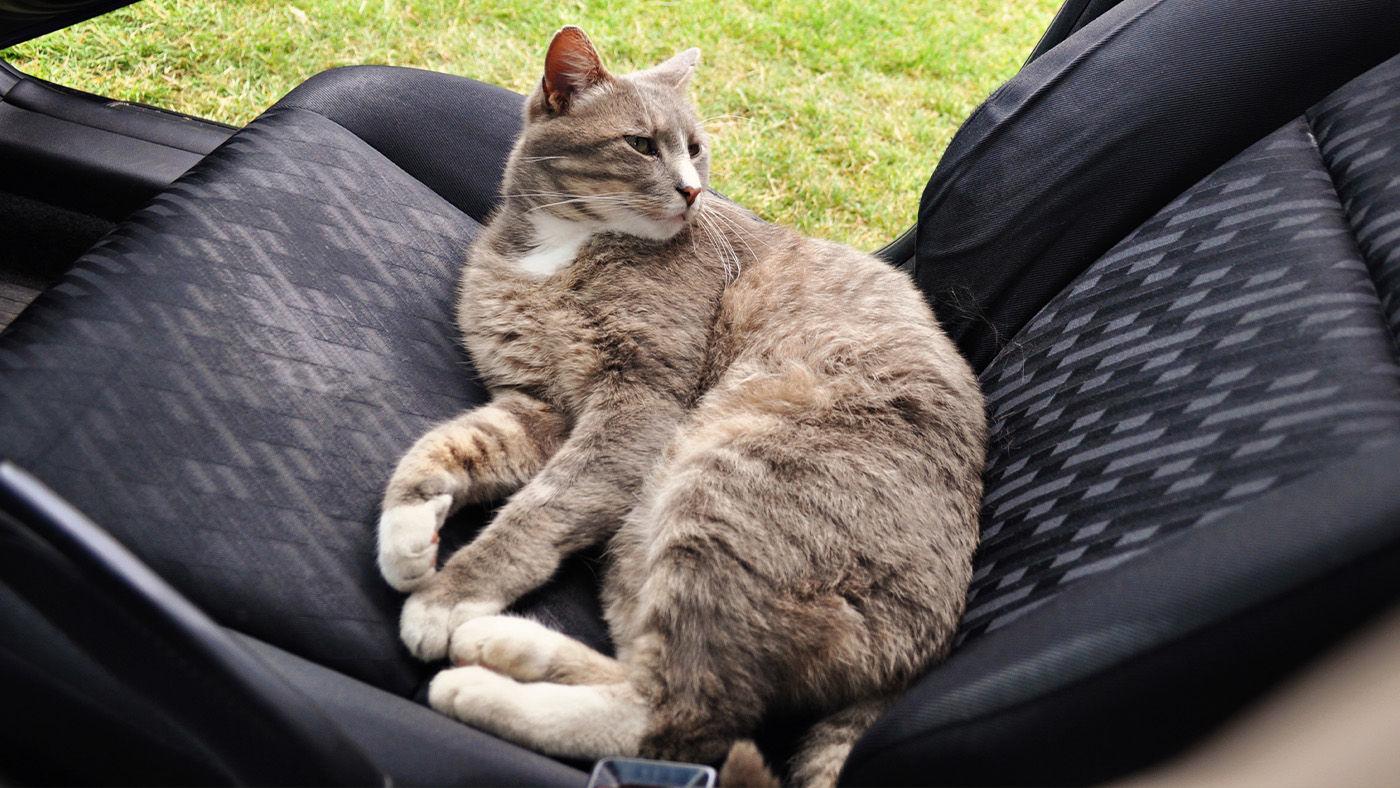Vet reveals 7 reasons why your cat licks their lips
Have you noticed that your cat licks their lips more than normal? I’m a vet, here are 7 reasons why and when to worry.
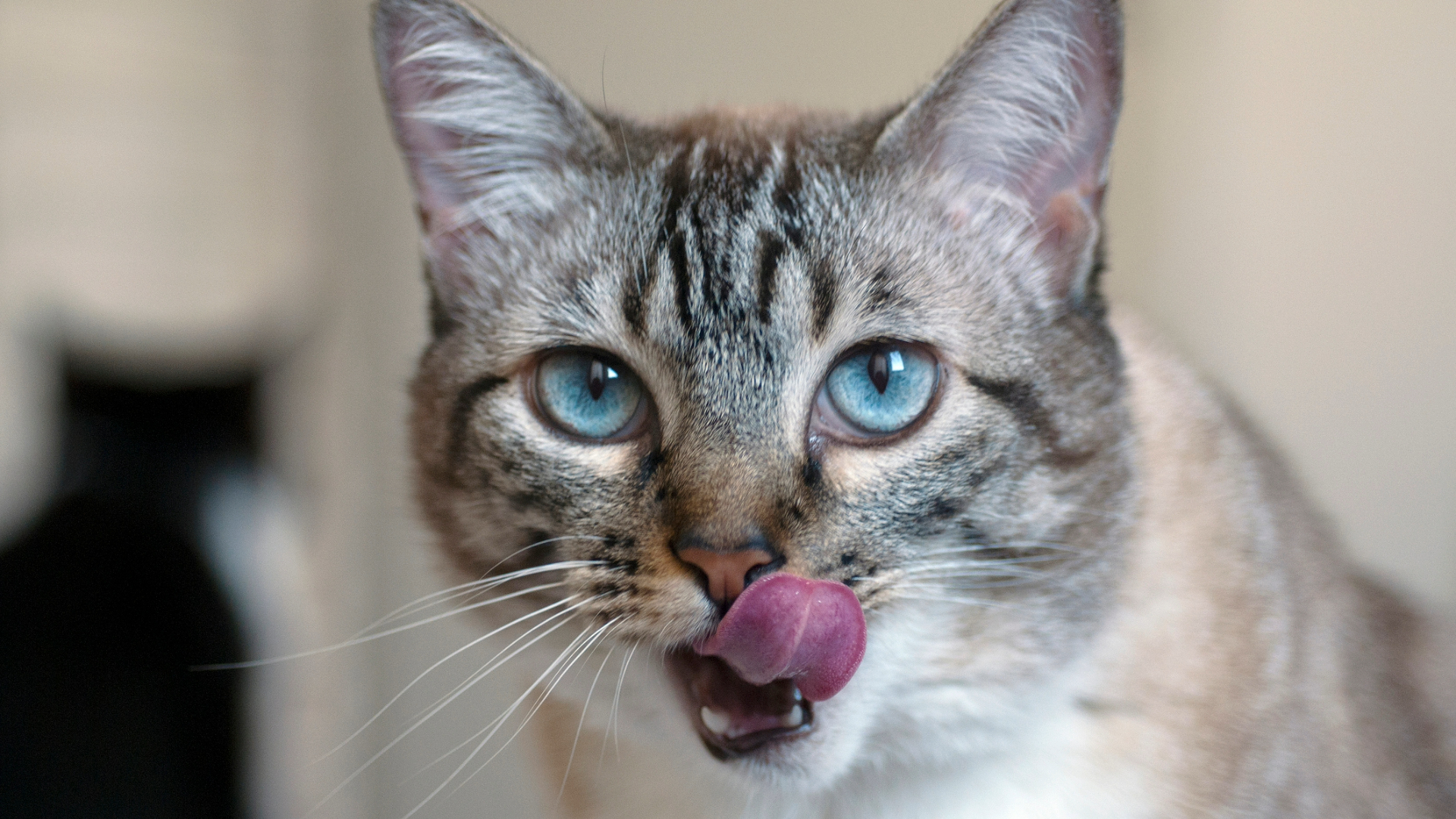
Wondering why your cat licks their lips a lot? This can be a strange and sometimes concerning behavior, especially if it’s new. Naturally, as a pet parent, you want to know if there’s a problem and whether there’s anything you can do to help.
I’ve been a qualified vet for eight years and I used to work in feline-only practice – so this is a question I’ve been asked more than once! I’ve also owned cats my whole life, although I don’t have the pleasure of cat company right now. This means I know just how worrying it can be as a pet parent when you notice a change in your furry family member’s behavior.
Normal lip licking is infrequent, and you’re unlikely to notice it, so if you’re noticing your cat licking their lips, it’s definitely worth working out what’s wrong.
As discussed later on, one cause might be a foreign object stuck in the mouth. This might happen if your cat likes to play with wool (a linear foreign object), so it’s a good idea to give them the best cat toys to have fun with instead.
While there are completely benign reasons for cats to lick their lips, sometimes it can indicate a problem. Like other changes in cat body language, licking lips is a sign that shouldn’t be ignored. In this article, we’ll cover all the reasons cats lick their lips and let you know what to do about them.
So why do cats lick their lips?
Here are all the reasons cats lick their lips, from the benign to the emergent. Let’s take a look:
Eating can be a messy business, especially when you haven’t got hands! The most common (and totally normal) reason for cats to lick their lips is that they have just eaten, and they want to do some post-eating grooming. Depending on how tidy and clean they are (cats vary, just like humans!), they’ll often have a quick lick of the lips and nose, and sometimes a wash with a paw.
PetsRadar Newsletter
Get the best advice, tips and top tech for your beloved Pets
If your cat only licks their lips after they’ve tucked into the best cat food, you don’t need to worry. It’s the feline equivalent of a discrete face wipe! This is more likely if they’re on wet food, as it will be a slightly messier meal, but some fastidious cats will end up licking their lips for a few seconds after finishing off a bowl of dry food too.
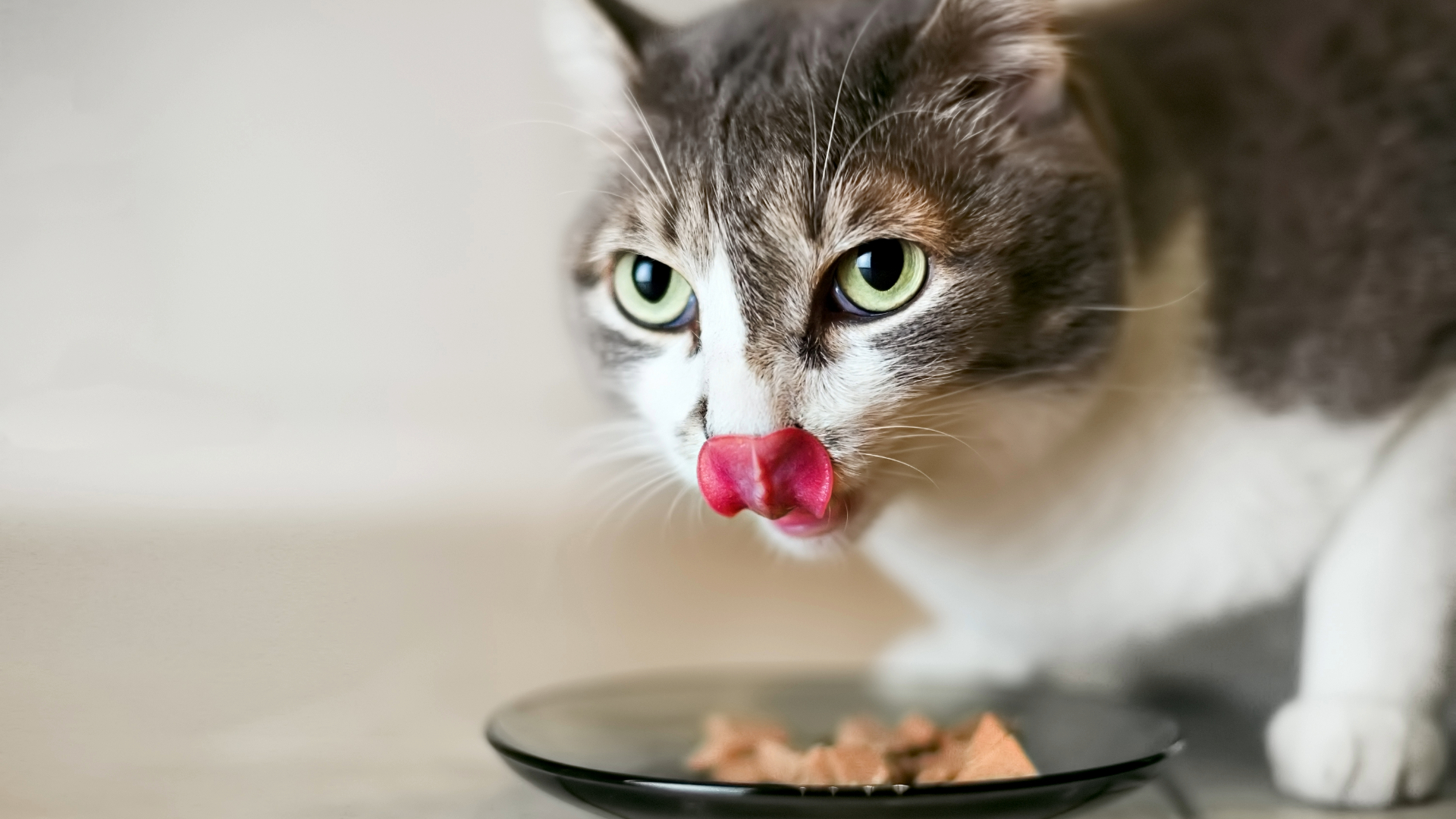
They’re feeling nauseous
Repeated lip licking, beyond the usual post-meal grooming, is often a sign of nausea. Nauseous cats might lick their lips, swallow more than normal, and refuse to eat. They may even sniff their food and then retch. Common causes of nausea in cats include kidney disease, toxins, infectious diseases, foreign bodies in the intestines, and pancreatitis, so there’s a lot that could be happening.
Nausea isn’t pleasant, and if you suspect your cat is licking their lips because they’re nauseous you should take them to the vet. They might recommend some testing or be able to give your cat something to make them feel better so they can eat again.
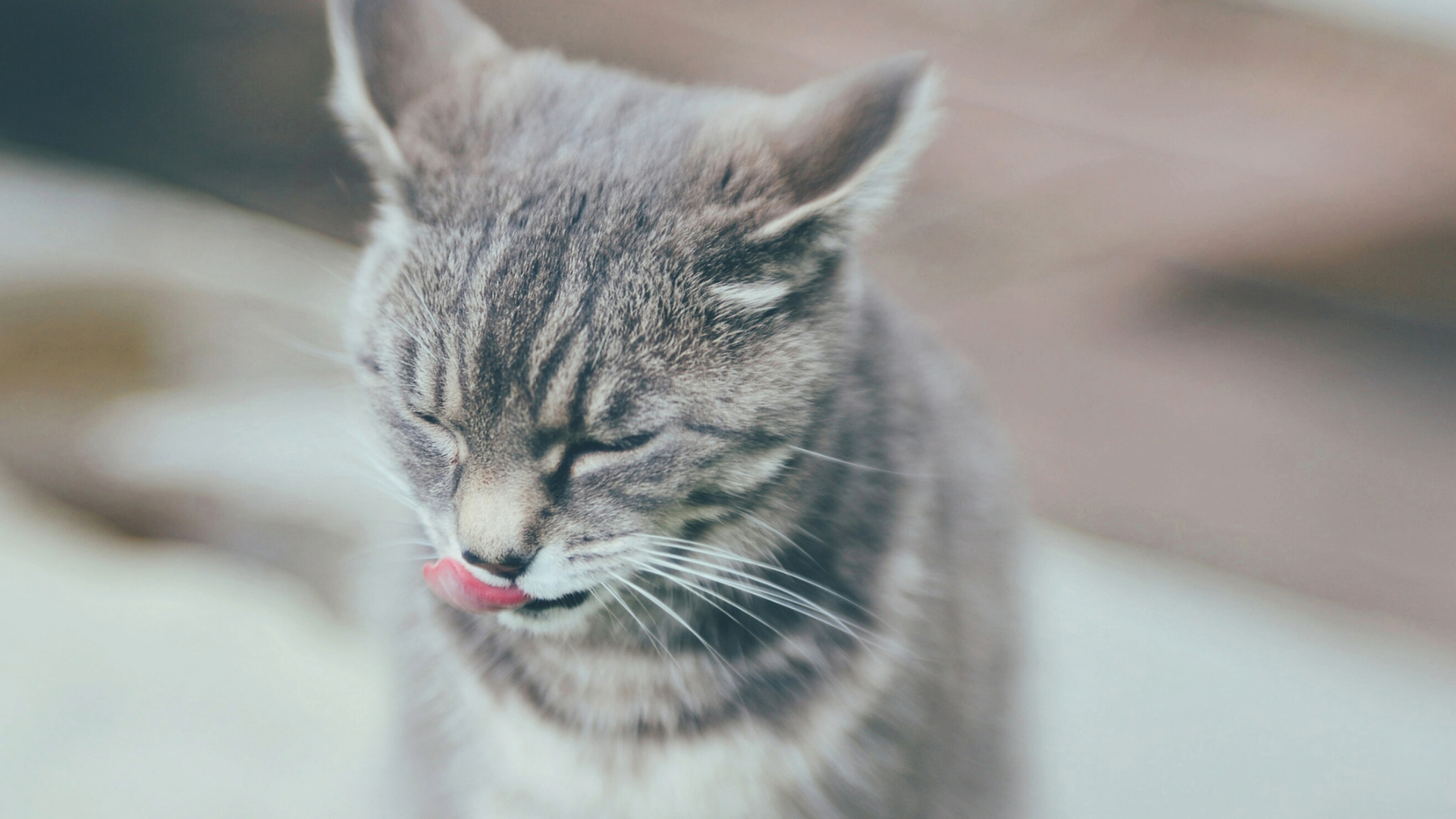
Mouth pain
Another common reason for cats to lick their lips is dental pain and other oral issues. This can create extra saliva, which encourages them to lick and swallow more. But even without the extra saliva, cats with mouth pain often lick their lips, yawn, and gulp. If you can get a look in your cat’s mouth, you might spot the issue - but don’t rule out mouth pain if you can’t see anything obvious. Cat teeth problems are often below the gumline, and they can also get masses under their tongue or at the back of their throat which are hard to see in a conscious cat.
If mouth pain might be your cat’s problem, it’s time to see a vet. They may need to be sedated for a thorough examination, and your vet might want to take x-rays of your cat’s jaws to get information on the parts of the teeth below the gumline.
PRODEN PlaqueOff Powder Cat Supplement
One of the top reasons for cats to lick their lips is mouth pain, often caused by dental disease. This powder has the Veterinary Oral Health Council (VOHC) seal of acceptance which means it’s been proven to have an effect on plaque and tartar. Toothbrushing is always a good idea, but for those cats who won’t allow it, or just for extra protection, this plaque-off powder can help keep bad teeth at bay.
Foreign body behind the soft palate
A classic summer picture for a vet is a cat being brought in for repeated lip licking and gulping. A grass blade caught at the back of the throat is often the culprit.
Cats like to chew grass, but grass blades commonly get stuck behind the soft palate. This makes the cat feel like they constantly need to swallow but – due to the small barbs on the surface of the grass blade – the blade doesn’t move no matter how hard they swallow.
A linear foreign object (often a piece of wool or even fishing line) is another common type of foreign body that gets stuck in the mouth, causing retching, lip licking, and gulping.
If there’s any chance this is the cause of your cat licking their lips, they need to go to the vet. Sedation will be necessary so your vet can examine the mouth properly and remove the object. To prevent this problem, using only the best cat toys, rather than spare bits of wool, reduces the chance of your cat swallowing them!
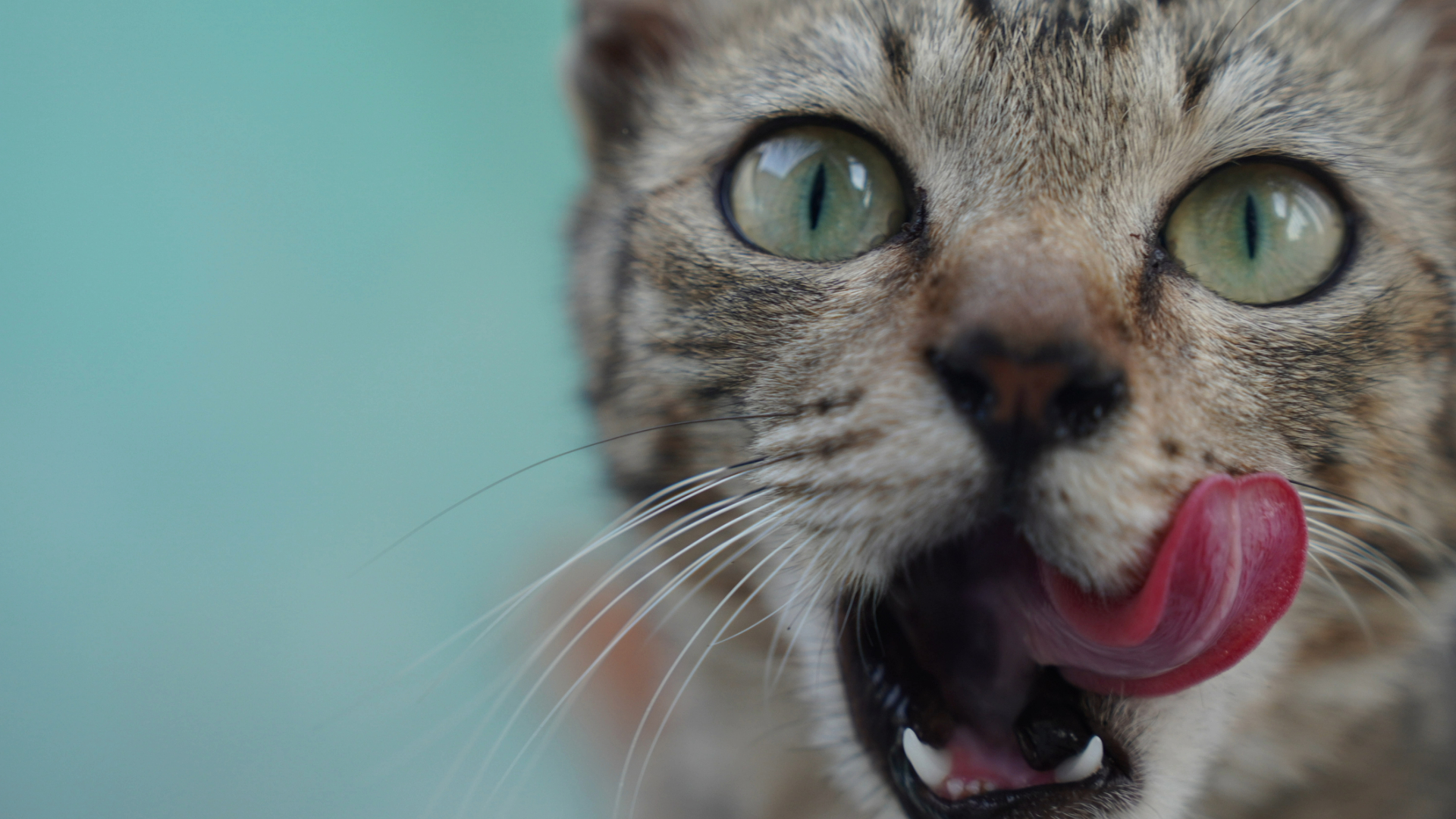
Anxiety or fear
Sometimes, anxiety in cats or fear can cause cats to lick their lips. Cats have very subtle body language that we humans often miss or misunderstand. Lip licking can be a displacement behavior to try to diffuse anxiety and tension. Have a look at your cat’s surroundings, and the situations when lip licking is happening to see whether this is the cause.
If anxiety could be the cause of your cat licking their lips, there are some things you can do. Creating a safer space for them can really help – there’s some great tips in our multi-cat household article that are relevant even if you only share your home with one feline family member.
Increased nasal discharge (that’s snot, to most people) can cause cats to lick their lips more as they try to catch the drips. You might notice clear or colored discharge from your cat’s nostrils as well as lip-licking, or there might be crusts around their nose or eyes. The most common cause of increased nasal discharge is cat flu, but there are other causes too.
In many cases, cats with nasal discharge caused by cat flu will get better on their own. However, you should monitor your cat’s appetite and general demeanor and take them to the vet if they seem under the weather. If the discharge is only from one nostril, it doesn’t improve within a week, or it gets worse, it’s time to head to the vet in case cat flu isn’t the cause!
Lip licking and swallowing are highly connected in cats, so it’s no surprise that cats lick their lips when they have excess saliva production. As we’ve discussed, this could be due to mouth pain, but there are other causes of saliva overproduction too.
Access to toxins is one, bitterants (like those used in topical flea treatments) are another. Some cats drool a lot with catnip, and there are other medical problems that cause excessive salivation.
Excessive salivation should prompt a vet visit, as it’s often a sign of a problem. If there’s a chance that your pet got into something toxic, make that an urgent appointment!
Most cats licking their lips will just be cleaning themselves up after a meal, but if your cat licks their lips more than normal, there could be something wrong. If you aren’t sure, scheduling a visit with your veterinarian is never a bad idea!
Looking to find out more about why cats do the things they do? We dig deep to find the answers to why do cats suck on blankets and why do cats eat hair — and you may just be surprised!
After graduating as a vet from the University of Nottingham, Dr Joanna Woodnutt went on to practice companion animal medicine in the Midlands. Since then, she has also written for countless online and print publications and is a regular contributor for Edition Dog Magazine.
